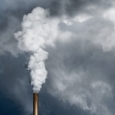Oil, Coal, and Gas Regulations
Oil, gas, and coal are three of the most widely used energy sources in America. Unfortunately, all three take a terrible toll on human populations and the environment, both during the extraction process and use. Government agencies including the Bureau of Ocean Energy Management, Regulation and Enforcement (BOEMRE) and the Environmental Protection Agency (EPA) monitor and regulate these economic sectors, and numerous laws have been passed to address the negative externalities created by these industries.
Commentary
PG&E’s success in Washington led to failure in San Bruno
Cry Wolf Quotes
I am here today to address the proposition that two provisions of the Energy Policy Act of 2005--that being section 327 concerning hydraulic fracturing, and section 328 regarding stormwater--have resulted in harm to drinking water resources in the United States. The evidence would strongly suggest otherwise. These two provisions simply removed unnecessary administrative burdens on the production of oil and natural gas in the United States.
Testimony submitted to this hearing by the Natural Resources Defense Council (NRDC) proposes a series of changes to federal environmental law that taken together can only serve to cripple American oil and natural gas production without attendant environmental benefits....The Committee – and more broadly the Congress – should summarily reject NRDC’s proposals. They follow the tired path of alleging to the Congress the need to change laws and regulations that do not follow NRDC’s world view and where NRDC and its allied professional anti-development organizations have failed to change the regulatory program through the normal processes or by appealing to the court system. This collection of proposals will have one clear effect – less exploration and production of American oil and natural gas and more foreign dependency. This is hardly an energy policy that makes sense of America.
...we are not supportive of the extensive, prescriptive regulations as proposed in this rule. We believe industry's current safety and environmental statistics demonstrate that the voluntary programs implemented since the adoption of API RP 75 have been and continue to be very successful.
The net result could well be a greater probability of oil spills, less likelihood of a responsible owner to deal with those spills, less reliable transportation of oil and greater cost to the consumer; the very things the U.S. wanted to avoid.



